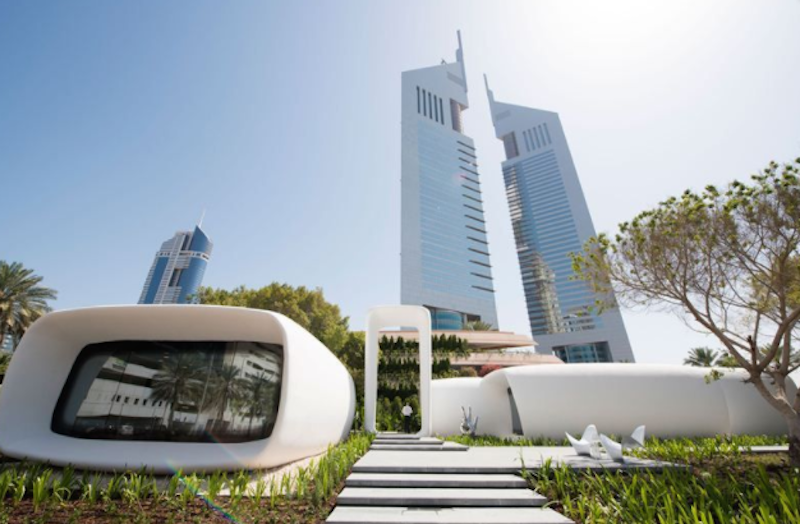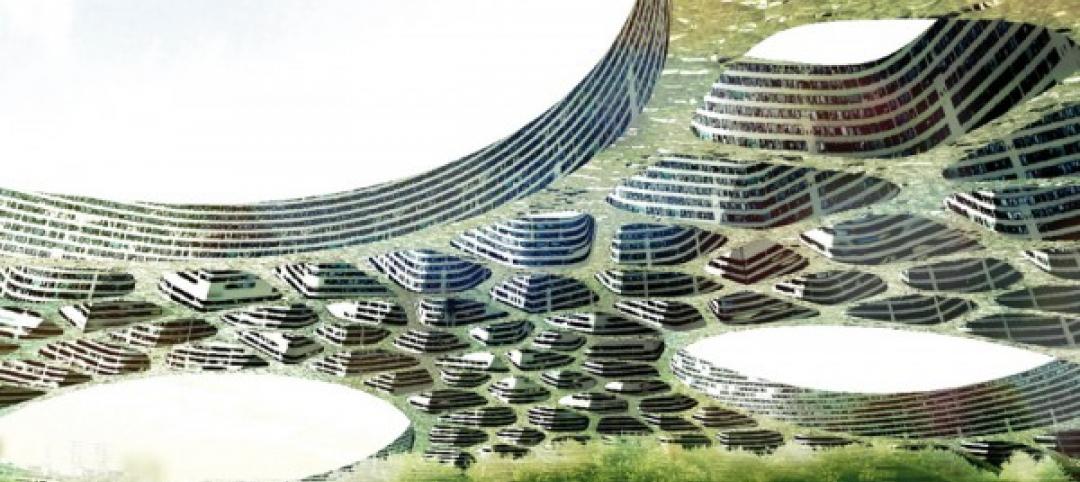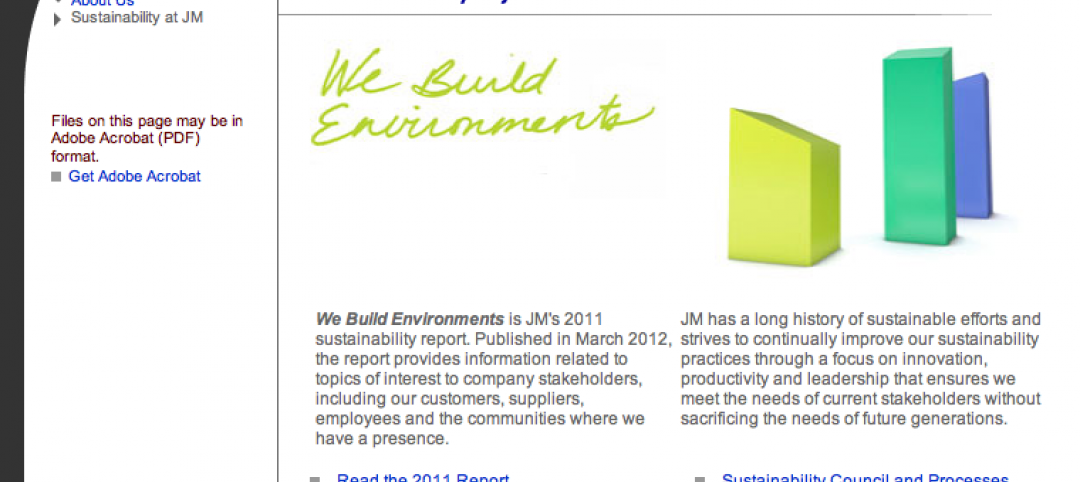Last April, Dubai unveiled its 3D Printing Strategy, which calls for 25% of buildings in that city to be constructed using 3D printing technology by 2030. That strategy focuses on three major sectors: construction, medical products, and consumer products. The use of 3D printing in Dubai’s construction sector will increase by 2% starting in 2019.
One month after the strategy was publicized, Dubai completed what it asserts is the world’s first 3D-printed office, a 250-sm (2,691-sf) building made from a mixture of cement and other building materials, and assembled in 17 days by a 3D printer measuring 20 feet high, 120 feet long, and 40 feet wide, with a automated robotic arm.
Can a 3D-printed city be too far behind? The answer might lie in the Minitank, a 3D-printing crane under construction that its developer, a Silicon Valley startup called Cazza Construction Technologies, says can layer 2,153 sf of concrete per day, which would make it 50% faster than conventional construction methods.
Cazza’s 19-year-old CEO and co-founder Chris Kelsey tells CNN that construction is the natural progression for 3D printing. Last year, the Dubai Road and Transport Authority invited Cazza to present its technology to government officials overseeing the 3D Printing Strategy initiative. “Out of all of the groups they’d seen online or spoken with, they were most fascinated with the capabilities of our unique machines,” Kelsey told ConstructionWeekOnline.com.
It remains to be seen, though, whether this technology is practical for large-scale projects. There’s not much information about Cazza’s origins or its technology on its website, nor any images of the Minitank. (The site, however, is opening soliciting for partners and distributors for its technology.) Previously, Kelsey founded a company called Appsitude, an app development company. Part of Cazza’s funding came from proceeds of Appsitude’s sale last year.
Cazza, though, is undeniably following in the footsteps of pioneers who have tested the limits of 3D printing for construction. These include Behrokh Khoshnevis, a professor at the University of Southern California, who invented a concrete-extruding 3D printer in 2009 that could print a 2,500-sf structure in 20 hours; the construction firm WinSun, which in 2014 3D printed 10 one-story houses in a single day; and DUS Architects, which last year 3D printed a full canal house in Amsterdam.
Cazza’s process is relatively straightforward: an architect would upload blueprints onto a computer system, which transmits the information to the crane printer that layers the concrete in the shape of the design.
The Minitank, if it becomes operational, will be able to print on-site, and construct buildings up to three stories high. “The barrier to companies [printing on-site] so far has been that it’s extremely difficult to develop a machine with all of the factors needed,” Kelsey explained.
The Minitank would use cement made from 80% recycled materials. Cazza claims that its portable equipment can be set up within 30 minutes, and that its process would reduce labor and materials costs by up to 90%. Fernando De Los Rios, Cazza’s COO, said his company would soon bring its engineers from across the world to start working in Dubai and surrounding areas.
Dubai’s Roads and Transport Authority has several 3D printed projects in the works already, including the Museum of the Future, and DEWA’s labs in the Mohammed Bin Rashid Al-Maktoum Solar Park.
Related Stories
| Apr 11, 2012
Shawmut appoints Tripp as business development director
Tripp joined Shawmut in 1998 and previously held the positions of assistant superintendent, superintendent, and national construction manager.
| Apr 11, 2012
C.W. Driver completes Rec Center on CSUN campus
The state-of-the-art fitness center supports university’s goal to encourage student recruitment and retention.
| Apr 6, 2012
Flat tower green building concept the un-skycraper
A team of French designers unveil the “Flat Tower” design, a second place winner in the 2011 eVolo skyscraper competition.
| Apr 6, 2012
Rooftop solar energy program wins critical approval from L.A. city council
Los Angeles Business Council applauds decision allowing LADWP to create new national model for rooftop solar energy
| Apr 3, 2012
Product Solutions
Two new PV systems; a lighter shelf; and fire alarm/emergency communication system.
| Apr 3, 2012
Johns Manville publishes 2011 Sustainability Report
Report covers JM’s long-time sustainability focus and progress towards goals.
| Apr 3, 2012
Educational facilities see long-term benefits of fiber cement cladding
Illumination Series panels made for a trouble-free, quick installation at a cost-effective price. The design for Red Hawk Elementary School stems from the desire to create a vibrant place for kids to learn. In an effort to achieve this design, RB+B Architects selected Nichiha USA to provide a durable yet modern, contemporary exterior finish.
| Apr 2, 2012
TGP launches new fire-rated glazing website
Website offers online continuing education courses registered with the American Institute of Architects (AIA), BIM 3D models, and rapid-response quoting, among other support tools.
| Apr 2, 2012
EB-5 investment funds new Miramar, Fla. business complex
Riviera Point Holdings breaks ground on $17 million office center.
| Mar 27, 2012
Skanska hires aviation construction expert Bob Postma
Postma will manage Skanska’s nationwide in-house team of airport construction experts who lead the industry in building and renovating airport facilities and their essential features.















